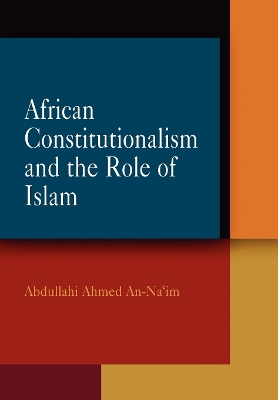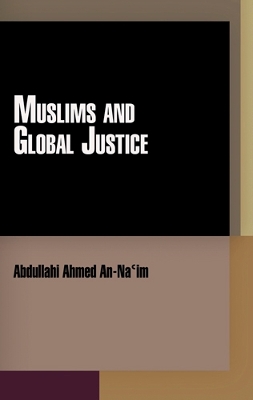Pennsylvania Studies in Human Rights
2 total works
African Constitutionalism and the Role of Islam
by Abdullahi Ahmed An-Na'im
Constitutionalism is steadily becoming the prevalent form of governance in Africa. But how does constitutionalism deal with the lingering effects of colonialism? And how does constitutional law deal with Islamic principles in the region? African Constitutionalism and the Role of Islam seeks to answer these questions. Constitutional governance has not been, nor will be, easily achieved, Abdullahi Ahmed An-Na'im argues. But setbacks and difficulties are to be expected in the process of adaptation and indigenization of an essentially alien concept-that of of nation-state-and its role in large-scale political and social organization.
An-Na'im discusses the problems of implementing constitutionalized forms of government specific to Africa, from definitional to conceptual and practical issues. The role of Islam in these endeavors is open to challenge and reformulation, and should not be taken for granted or assumed to be necessarily negative or positive, An-Na'im asserts, and he emphasizes the role of the agency of Muslims in the process of adapting constitutionalism to the values and practices of their own societies. By examining the incremental successes that some African nations have already achieved and An-Na'im reveals the contingent role that Islam has to play in this process. Ultimately, these issues will determine the long-term sustainability of constitutionalism in Africa.
Over the course of his distinguished career, legal scholar Abdullahi Ahmed An-Na'im has sought to reconcile his identity as a Muslim with his commitment to universal human rights. In Muslims and Global Justice, he advances the theme of global justice from an Islamic perspective, critically examining the role that Muslims must play in the development of a pragmatic, rights-based framework for justice.
An-Na'im opens this collection of essays with a chapter on Islamic ambivalence toward political violence, showing how Muslims began grappling with this problem long before the 9/11 attacks. Other essays highlight the need to improve the cultural legitimacy of human rights in the Muslim world. As An-Na'im argues, in order for a commitment to human rights to become truly universal, we must learn to accommodate a range of different reasons for belief in those rights. In addition, the author contends, building an effective human rights framework for global justice requires that we move toward a people-centered approach to rights. Such an approach would value foremost empowering local actors as a way of negotiating the paradox of a human rights system that relies on self-regulation by the state.
Encompassing over two decades of An-Na'im's work on these critical issues, Muslims and Global Justice provides a valuable theoretical approach to the challenge of realizing global justice in a world of profound religious and cultural difference.

